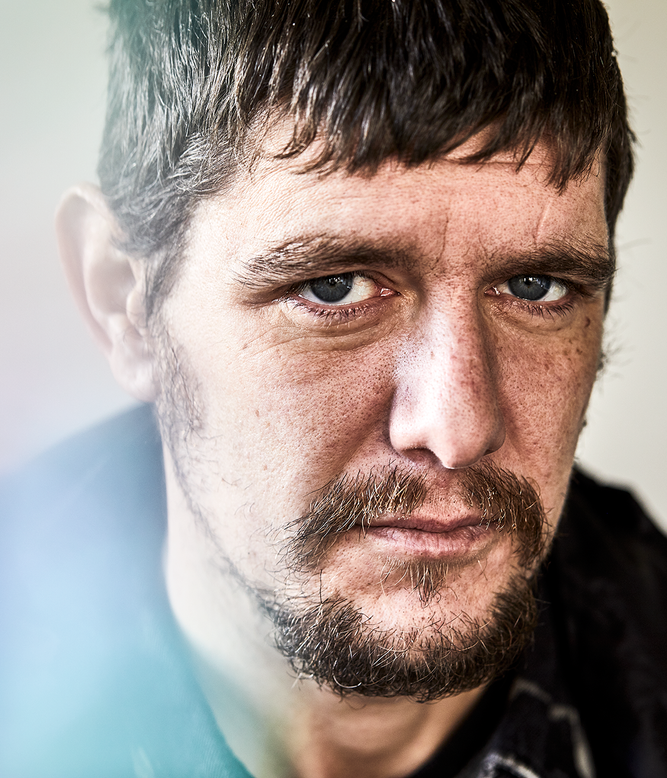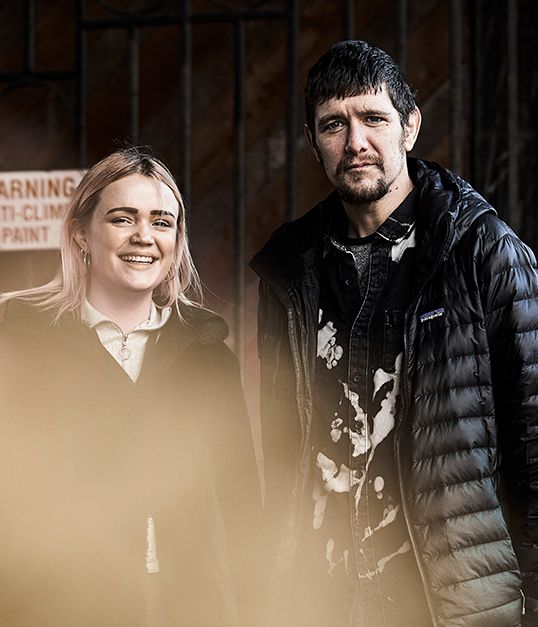opioid dependence
Will's story

Will started drinking and smoking when he was about 12 years old. By the time he was 13, he already felt he had a problem. His use intensified, and at the age of 17 he started using heroin.
Focus on recovery
"I do feel like I was always going to have a drug problem, like it was an issue from when I was very young. Look at my drinking, for instance. Ever since I first started drinking alcohol, I always drank with the goal of getting drunk instead of just having one or two glasses. And as soon as I started smoking weed [cannabis], I smoked it every day."
Up to his 30s Will describes himself as a functioning drug user.
“I was holding down a job and living a normal life, while keeping my habit down to just a couple of bags of heroin a day.”
But life took a downturn when he split up from his girlfriend. He moved into a flat and got to know a lot of homeless drug users. Will’s drug habit escalated; he lost his flat and started living on the streets.
About two years ago things changed, partly due to his social worker Robin who did not give up trying to get him to seek support and into treatment. “When you feel like someone saved your life, and Robin and the doctor really did, you are for always grateful to that person.” Will says.
“I got to the point where I thought if I carry on the way I’m going I’ll probably be dead before I’m half-way through my 40s.” [...] “I could have carried on, still going out now like I used to do. But then I really had enough of it all, of the way normal people look at you, assuming the worst of you... There is simply not any part of it that I enjoy any longer. I just finally had enough.”

With treatment his health stabilized and Will was able to focus on recovery and making plans for the future. He managed to get a room in a shared house and today life looks different. “I definitely look healthier. I mean I’ve put on weight for a start, but also my clothes look tidier and stuff like that.” Will says he also feels he is perceived differently - “It does make a difference how you look – people treat you differently, definitely.”
Navigating a new way of living
Last year Will started a college course with the goal of becoming a drug counsellor. However, the course moved online due to the COVID-19-pandemic and UK lockdown, and it became difficult for him to keep up. Will was able to postpone the course and plans to restart this year. “This has always been something I wanted to do, even before I was on drugs myself. When I was young, I knew a few people that were quite bad on drugs. I wanted to be able to help them but couldn’t.”
Currently Will does his best trying to keep himself busy, navigating a new way of living. “It is like I need to retrain my brain,” he explains. “I think the brain has a muscle memory that cannot tell time. Like say your Mrs was pregnant, and she lost the baby. If she gets pregnant again, you need to retrain your brain to think differently, to not expect a loss. I need to do the same thing. I need to stop my brain from thinking I need to get high every day.” How to do it? “That is the bit I am trying to figure out.”
Symptoms
In addition to cravings, withdrawals and drug seeking behavior, physical symptoms of opioid dependence may include changes in sleep habits, weight loss and decreased libido.
Diagnosis
An opioid dependence diagnosis may be made by a doctor following a formal assessment based on the patient’s history and pattern of opioid use, such as use of heroin, other illicit opioids or prescription opioids.
Management
Treatment and management of opioid dependence need to be individualized and may consist of a combination of different pharmacological and psychological interventions.
Explore more
Learn more about opioid dependence.